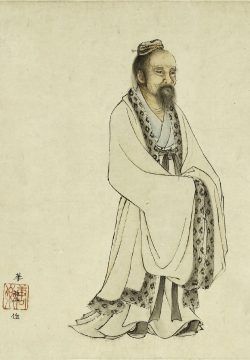 John Altmann and Bryan W. Van Norden in the NYT:
John Altmann and Bryan W. Van Norden in the NYT:
In one of his philosophical parables, the Taoist philosopher Zhuangzi (fourth century B.C.) describes a man he calls Splay-limb Shu. This man’s “chin is sunk in his belly,” Zhuangzi writes. “His shoulders are above his head, and pinched together so they point to the sky. His five organs are on top, his thighs tight against his ribs.” In Zhuangzi’s era as in our own, most people would consider Splay-limb Shu to be unfortunate.
But Zhuangzi, whose work frequently challenged society’s norms, sees things differently. He notes, for instance, that Shu is in no danger of being conscripted into the military or pressed into forced labor. Instead, he lives contentedly in his community, supporting himself by “plying a needle and taking in laundry.” Shu, Zhuangzi concludes, is “able to keep himself alive and to live out the years Heaven gave him” precisely because he is different from others.
Even today, this insight is striking. Zhuangzi poses the idea that Shu’s difference — one we would classify today as a disability — is not a misfortune, and in doing so challenges an assumption that has existed in cultures of all kinds for millenniums.
More here.
